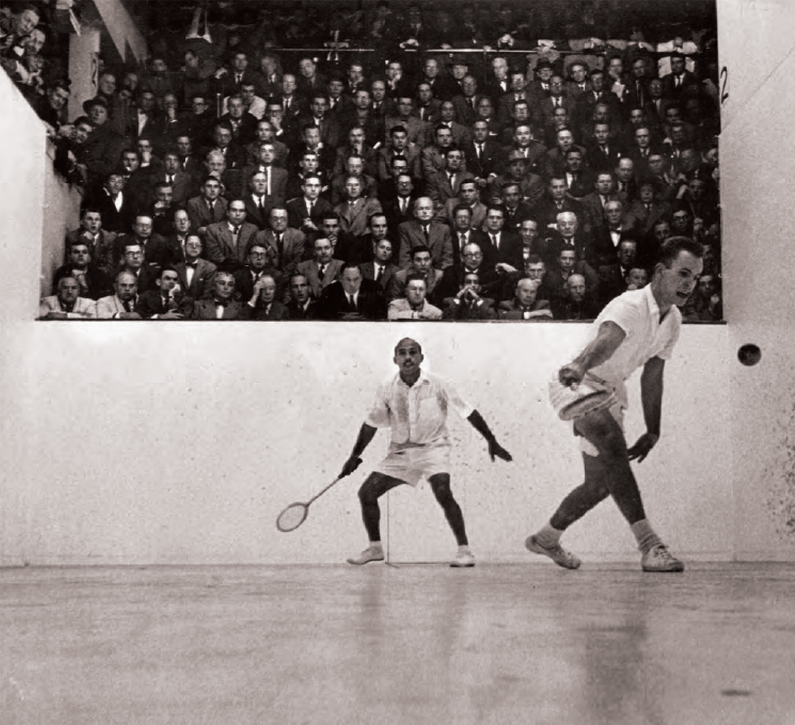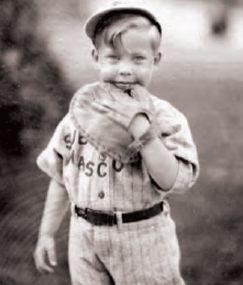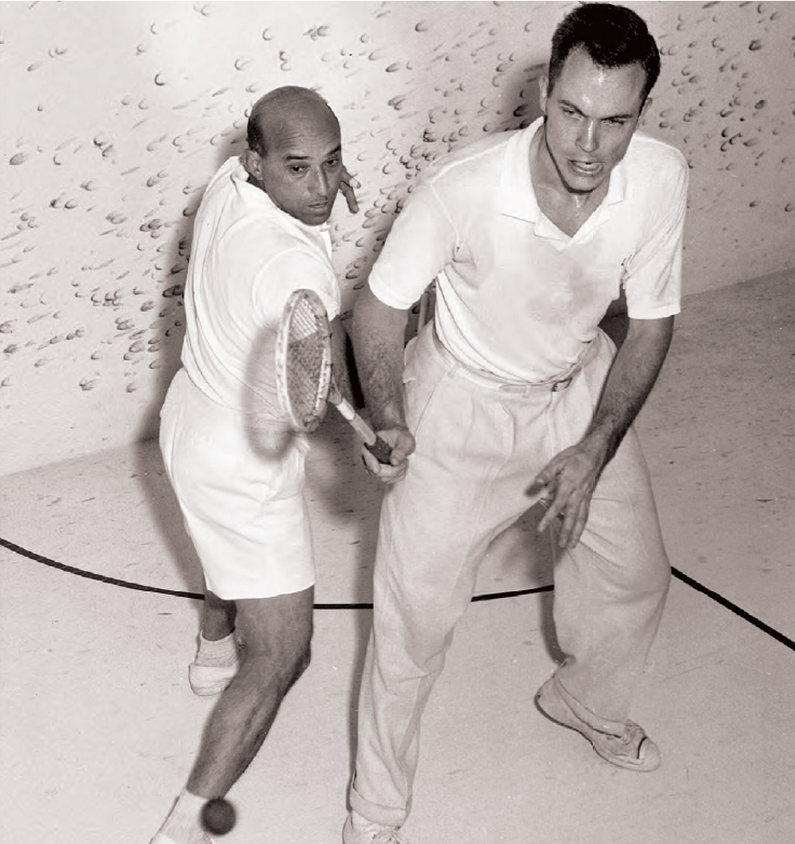
By James Zug
 Walking out onto the steps of St. Mary’s Episcopal Church in Wayne, Pennsylvania, after Diehl Mateer’s funeral service, one of the most storied players ever said to me: “He was the one, wasn’t he? Yes, yes, George Diehl Mateer, Jr. was the greatest amateur squash player in U.S. squash history.
Walking out onto the steps of St. Mary’s Episcopal Church in Wayne, Pennsylvania, after Diehl Mateer’s funeral service, one of the most storied players ever said to me: “He was the one, wasn’t he? Yes, yes, George Diehl Mateer, Jr. was the greatest amateur squash player in U.S. squash history.
He was the Rod Laver of squash. Mateer swept up national titles on the singles court. He won the intercollegiates the first two years he was eligible, while at Haverford College (which had no team or courts). He would have captured the third, but the national doubles was scheduled on the same weekend and he didn’t want to let his partner down. Some years he collected every amateur tournament on offer. He won the nationals three times. He lost four other times in the finals, three to his great rival Henri Salaun.
It was poignant that his funeral was almost at the same hour that the 2012 Delaware Investments U.S. Open was starting just a few miles away, for Mateer won two U.S. Opens. He twice beat two Khans on a single day, including in the 1959 U.S. Open in Pittsburgh in the semis (Roshan) and finals (Hashim), this after beating two other international pro legends, Doug McLaggan and Dardir El Bakary, in earlier rounds.
He was the Jack Nicklaus of squash. Mateer won the national doubles 11 times, with five different partners including a player, Cal McCracken, who had never played in a doubles tournament before. He reached the finals a further nine times (Nicklaus came in second in a major 19 times). He played in every national doubles championship but one from 1946 to 1983.
Six foot one, heavily muscled, with curly blond locks, Mateer was the standard bearer of mid-century squash. He had Merion Cricket Club and Episcopal Academy on his resume but almost by fluke: Fitz Dixon, a teacher at EA, had noticed Mateer’s fine strokes in his first tournament and got him a scholarship, starting in tenth grade, which led to his immersion in squash which led to everything.
He was a member of the inaugural class of inductees into the U.S. Squash Hall of Fame in 2000, as well as in the College Squash Association, Maryland Squash and Episcopal Academy’s halls of fame.
Mateer was a natural athlete—twice he played at Forest Hills—with sweeping, powerful strokes, but he worked hard at his squash game. He got tense. He was fiercely competitive. “If there isn’t a squash court in heaven,” Gil Mateer said at the funeral, “there will be now.”
He did have a light side. He liked practical jokes. One autumn afternoon he filled son Drew’s car with leaves just before Drew headed out on a much anticipated date. Another time on the first of April he tricked his wife Joan into thinking they had won a week-long vacation in the Caribbean.
He died in September 2012 at the age of eighty-four from heart failure. His second wife Ann told me as we left the churchyard that doctors discovered in the autopsy that Diehl Mateer’s heart was much much smaller than expected, that he must have had rheumatic fever as a child. It was amazing, the doctors said, with a heart that size that he played squash at all, let alone at the national level. It was amazing that he was the one.



